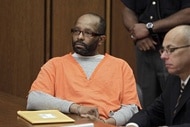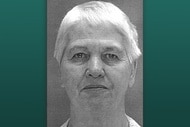Create a free profile to get unlimited access to exclusive videos, breaking news, sweepstakes, and more!
Was Ted Bundy A Misogynist?
Before he was revealed to be a brutal serial killer, Ted Bundy reportedly had no problems gaining favor with women. But was the feeling mutual?

It seems like a bit of a given that Ted Bundy, a serial killer who is thought to have killed at least 30 women in the 1970s had, um, a few issues with the fairer sex.
But was he killing women only because he hated them?
Ann Rule, who wrote the 1980 true crime novel “The Stranger Beside Me: The True Crime Story of Ted Bundy,”once asked him that very question.
“Ted, do you like women?” she asked him after his long-time girlfriend turned him into police.
“He considered the question and said slowly, ‘Yes… I think I do.’”
She reminded him that he seemed to care for his mother.
“Remember, when you told me how you found out for sure that you were illegitimate, and I reminded you that your mother had always kept you with her, no matter how difficult it might have been for her?”
He nodded and said, “Yes, she did.”
Bundy was born in 1946 at an unwed mother’s home. While growing up with his mother, aunts, and grandparents in Pennsylvania, the young Bundy believed that his grandparents were his mother and father, and thought that his actual mother was his sister. Despite this, he has routinely denied that his upbringing had anything to do with his later behavior.
“There’s nothing in my background which would lead one to believe that I was capable of committing murder,” Bundy said in one of the taped interviews in Netflix’s recent special, “Conversations with A Killer: The Ted Bundy Tapes.”
Nevertheless, Bundy claiming to “like” women seems like a contradiction with what he is quoted saying in the Netflix docu-series.
“A person of this type chooses his victims for a reason,” he said, appearing to help profile a killer (although he was arguably referring to himself). “His victims are young, attractive women. Women are possessions. Beings which are subservient, more often than not, to males. Women are merchandise.”
He said that for the theoretical predator, the killing has a sexual component but that sex has significance "only in the context of a much broader scheme of things: that is possession, control, violence.”
Dr. Diana York Blaine, the director of University of Southern California's Undergraduate Department of Gender and Sexuality told Oxygen.com that Bundy "was driven by a need to possess and subdue a certain symbol, as well as an actual person. Because whiteness is the privileged race category, and females now have access to education and careers once available to males only, these females were potential rivals for his power. By dominating them, he conquers both the terrifying concept of the maternal figure who once controlled him and the social mandate to be the privileged, more potent sex in spite of the fallibility and mortality of all humans."
She added that in the United States, females are viewed as objects, "either exalted or degraded" and that "thus the male achieves a kind of power over the one real threat to his masculinity—a female of equal, or superior, status to himself. Ted Bundy’s sense of inferiority meant that he needed not only to have relationships with women, but to destroy them, to establish his sense of self."
When asked how Bundy could both love and kill women, as he did claim to love his mother and other women in his life, Blaine explained that this "reflects a larger cultural belief that only certain females are worthy of man’s love, that these women somehow transcend the stigmatized category into which we place 'woman.'"
She added that for men that see women this way, "there always lurks the possibility that the 'good' woman will become the 'bad' one, so misogyny is built into the system. This dual need to love and to destroy suggests the precarity of normative masculinity. If it can only be predicated on the inferiority of 'woman,' then even those females who are somehow granted privileged status pose a threat to male integrity, a threat handled in the case of Ted Bundy by utter destruction of surrogate females, standing in for those close to him, and for the horrible idea of 'woman' as an enigmatic object."
Dr. Al Carlisle, a psychologist at the Utah State Prison who interviewed Bundy after his first arrest in 1975, before he was accused of being a serial killer, concluded that Bundy had a “strong dependency on women,” according to Rule’s book.
“I am undeniably dependent on women,” he wrote in a letter to Rule. “Given birth by a woman, taught in school by women, and deeply, deeply in love with one woman.”
Rule also described Bundy as someone whose “manner toward women could change in an instant — from tenderness to hospitality” and as “a man who turned cold and hostile toward women with very little provocation.”
Although he admitted to Rule that he had no problem getting women into bed with him, he seemed to also resent them. For years, he was obsessed with seeking revenge on his first girlfriend after he felt she rejected him.
Even after his arrests, he still seemed to depend on women.
“It is interesting to note that through all the trials, through all the years of black headlines that would label Ted a monster, and worse, he would always have at least one woman entranced with him, living for the few moments she could visit him in jail, running errands for him, and proclaiming his innocence,” Rule wrote. “The women would change as time passed.”
She noted that he excelled at being able to “manipulate women with ease.”
[Photo: Netflix]


























